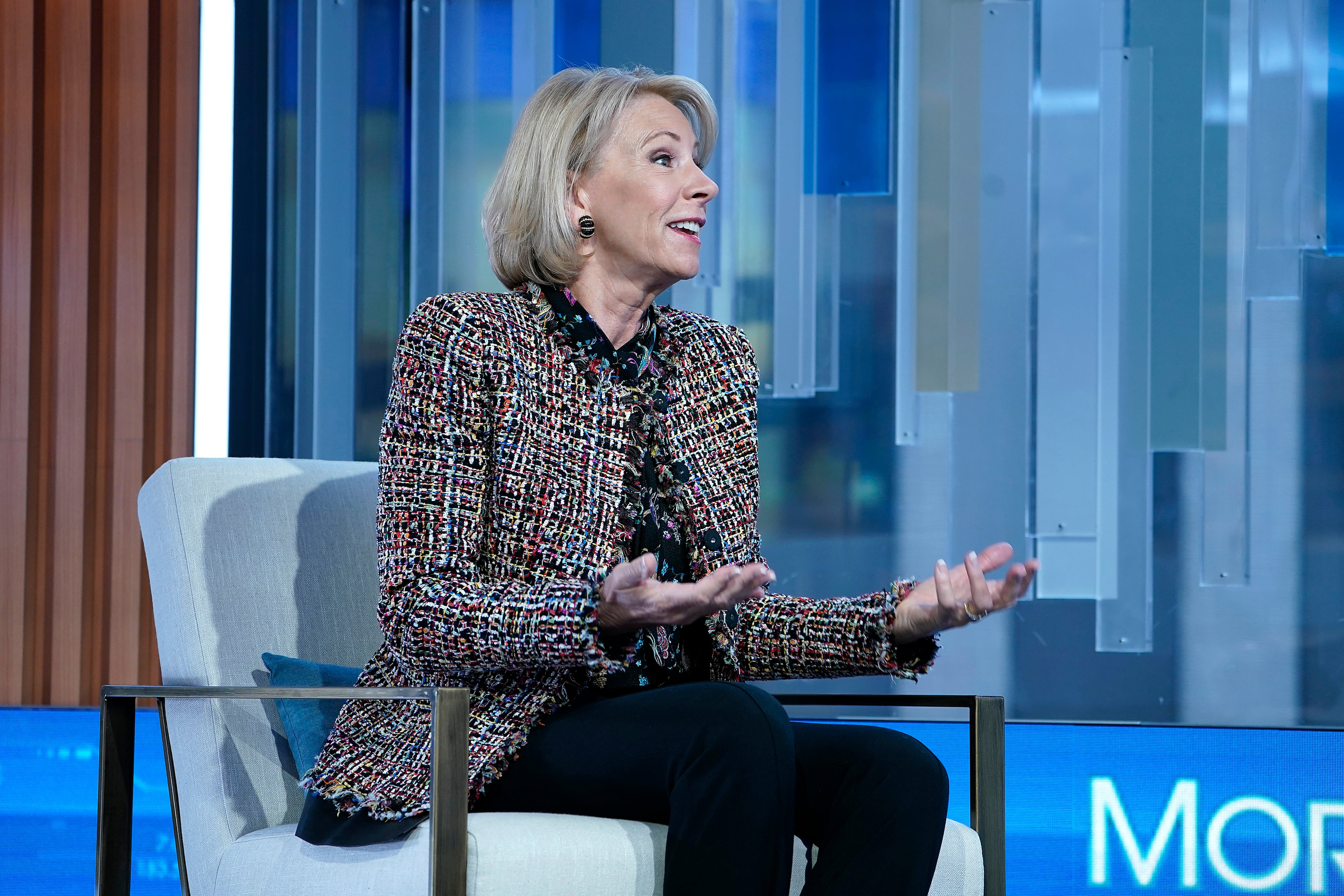Education Secretary Betsy DeVos is wielding federal authority to help private schools in the wake of the coronavirus pandemic — and legal experts say she’s pushing the bounds of the law to do it.
States are divided over whether they will follow guidance DeVos issued at the end of April, which directs districts to set aside a larger-than-expected share of dollars for private schools. With several states saying they don’t intend to follow the department’s interpretation, DeVos is now moving to turn it into a legally binding rule, just as Congressional Democrats try to nullify it.
That makes it even more important to answer the question: Who’s right about the law?
Chalkbeat asked education law scholars and lawyers to weigh in. Six did, and each said they viewed the department’s guidance as a misreading of the law that leaves DeVos’ move open to legal challenge — though many said she stood a chance of prevailing in a potential legal fight.
That’s still a small group of legal experts. But their opinions represent the widest range of expert views collected on the issue so far, and the consensus helps explain why some states are choosing to flout DeVos’s guidance and may foretell a clash in court.
“I believe that it is unreasonable,” said Julie Underwood, an education law expert at the University of Wisconsin who sees the department’s interpretation as a way for DeVos to advance her policy preferences. “It is consistent with their intention to provide services and resources to private schools,” she said.
Angela Morabito, a spokesperson for DeVos, did not make her available for an interview or point to any independent legal experts to support the department’s interpretation.
But the department is not backing down, and has offered a detailed defense of its approach, arguing that it is right in line with Congress’ intent.
“Congress directed the Department to make sure all students are able to be served through the CARES Act,” Morabito said.
The key question: provide aid to private schools based on all of their students, or just those from low-income families?
This debate turns on how much federal CARES Act money public school districts must share with surrounding private schools. This isn’t a new idea: School districts already do this with money they get through Title I of the federal education law. (Districts provide private schools with specific services, not cash, which is why the practice is referred to as “equitable services.”)
The federal CARES Act explicitly says that districts must provide private schools with services in the “same manner” as Title I. Title I requires districts to allocate money for these services based on the share of low-income students in private schools.
DeVos’s guidance, though, says the coronavirus relief money should be distributed based on the share of all students in an area that attend private school. The distinction matters, since DeVos’s interpretation generally means more money — in some places, a lot more — will end up going toward private schools.
Legal scholars who spoke to Chalkbeat say DeVos’ guidance is incorrect because it contradicts the “same manner” language.
“I think the best way to describe it is that it is flatly inconsistent with the law that Congress enacted,” said Aaron Tang, a law professor at the University of California Davis. “It’s actually a rather simple issue in my view.”
“To me what she’s doing is clearly illegal,” said Derek Black, a law professor at the University of South Carolina who has been frequently critical of DeVos. “She’s making something up that is contrary to the specific methods that are described in the CARES act itself.”
Preston Green, a professor of educational leadership and law at University of Connecticut, agreed. “That just strikes me as not providing services ‘in the same manner,’” he said, referring to the guidance.
“I think they started with a destination in mind and found a rather circuitous route,” said education lawyer Julia Martin, referring to the federal education department. “I just think it’s not a logical reading of the statute.” (Martin said she and others at her law firm are currently providing legal advice to states and districts regarding the guidance.)
Martin pointed to a recent radio interview in which DeVos said she saw the pandemic as an opportunity to support access to private schools.
This interpretation got a boost from Sen. Lamar Alexander, the Republican chair of the Senate education committee. “My sense was that the money should have been distributed in the same way we distributed Title I money. I think that’s what most of Congress was expecting,” he said last month.
So what’s the department’s case? The argument boils down to the idea that the education relief dollars are designed to help all students, not just low-income students, and a literal interpretation of “in the same manner” would actually undermine Congress’ intent.
DeVos spelled that out in a letter to the organization representing state education leaders. She noted that the coronavirus relief legislation says that school districts can use the money to pay for things like cleaning schools and buying technology for remote instruction that benefit all students, and that CARES Act dollars do not come with the restrictions attached to Title I dollars.
Because dollars for public schools can be used for all students, the allocation for private schools should also be based on all students, not just those from low-income families, DeVos argues.
If districts “were to only count Title I eligible students, they would be placing non-public school students and teachers at a disadvantage that Congress did not intend, because CARES Act services for public school students are not so limited,” said Morabito, the department spokesperson.
Notably, even critics of DeVos’ interpretation agree that the equitable services could include things that wouldn’t be allowed under Title I.
“The context of this statute was to provide monetary relief during the coronavirus pandemic,” said Underwood. “I don’t think that those services just are specifically Title I services, but would have to go beyond that to respond to this particular situation.”
If the issue does wind up in court, DeVos stands a decent chance of winning, said legal observers, since judges generally defer to agencies when it comes to interpreting federal law.
Marty West, an education professor at Harvard who often writes about education law issues, said he thinks that DeVos’ interpretation is a misreading, but that doesn’t mean he’s predicting she would lose a lawsuit.
“The administration’s argument that, in a bill aimed at responding to the coronavirus pandemic, private schools should receive aid based on their total rather than low-income enrollment, is hardly unreasonable,” he said.
“That’s their argument,” said Martin, the education lawyer. “Yes, it is a plausible reading of the statute. But I also think it’s incorrect, and I think it’s inconsistent with Congressional intent.”






